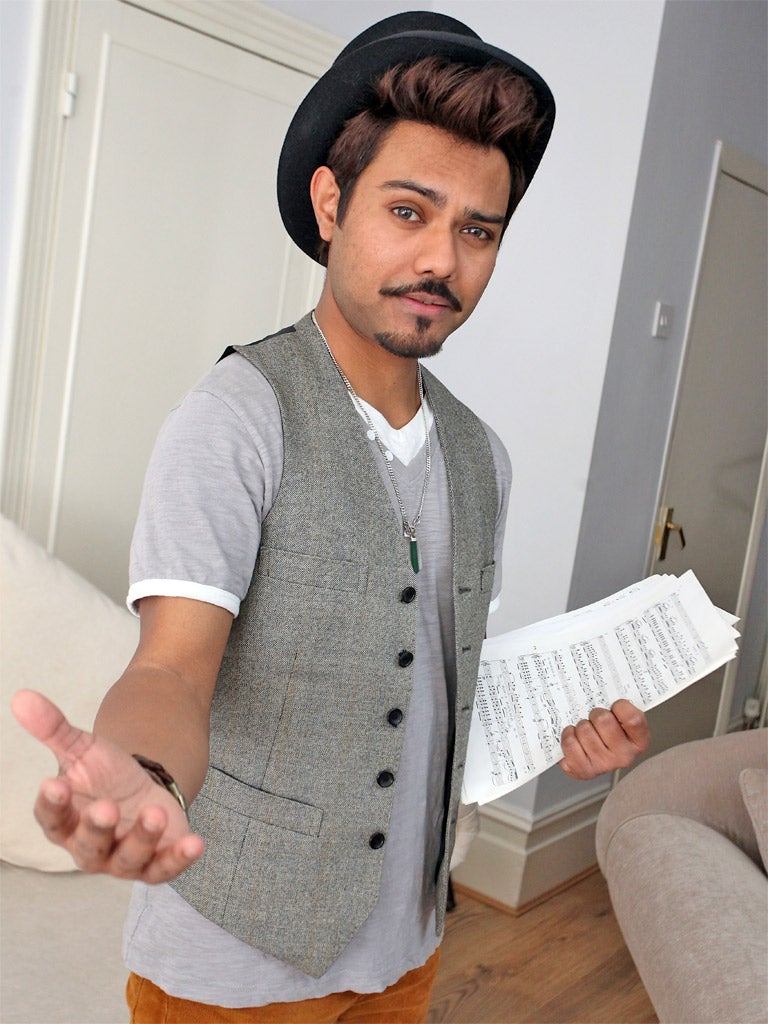Scientist Jayson Khun-Dkar discovers opera singing skills after television experiment

Last year Jayson Khun-Dkar read an advert in a newspaper while sitting on the bus. At the time, he could not read a single musical note and his experience as a singer amounted to a few bravado karaoke performances, which, though highly commended by his friends, gave no clue to an extraordinary talent lying dormant within. Today, Jayson Khun-Dkar is an opera singer.
Out of more than 900 people who responded to the advert, an invitation to take part in a scientific experiment to find people’s hidden talents, Jayson, a 34-year-old scientist, engineer and charity worker, was found to have the latent potential to sing opera at the highest level.
Now he has performed with professional singers in a production of La Boheme and hopes to build a musical career in a genre he calls “operatic rock”. Last night, his story was broadcast as part of the Channel 4 documentary Hidden Talents.
“After replying to the advert, I got called in to do all sorts of weird and wonderful tests,” he told The Independent. “We were blindfolded and told to find our way out of a room, we did language tests and also had to see how long we could hold our breath underwater.”
Applicants were asked to sing Happy Birthday in tune – a fail-safe test of basic musical aptitude, according to singing coach Stuart Barr, that only one in three people pass.
“The pianist kept making the notes go higher and higher,” Jayson said. “This loud voice just started coming out of me and everyone was shocked and so was I. I was so embarrassed I left the room and they had to rush down the corridor to bring me back.”
“Jayson was a revelation,” said Barr, a former president of the British Voice Association. “He had absolutely no idea that there was this voice within him. We saw a look of wonderment in his face when the notes first came.”
Scientific testing proved that Jayson was indeed a born opera singer. Professor David M Howard, an electronics expert from York University who specialises in digital analyses of the human voice, found that Jayson had a “natural ring” to his voice that ideally suited him to singing with an orchestra. Studies of the muscular structure of his larynx also showed his voice, with training, would have the resonance of the best baritones.
Joy Mammen, a voice teacher who has worked with Pavarotti, trained Jayson ahead of his first stage performance.
“He has the raw talent,” she said. “It takes ten years work to make a true opera singer, but he has what it takes to go professional if he keeps going with it.”
Jayson has played the role of Benoit in La Boheme at the Kings Head Theatre in north London. Although he intends to carry on performing as an opera singer (he can sing high baritone and tenor) he has also been writing songs that apply his new-found talent to a different musical genre: rock. “That’s the scientist in me,” he said. “I’m very much into experimenting.”
Through his charity work with the NASA Millennium Award Project, Jayson helped children from disadvantaged backgrounds get into science courses at college and university. He said that he himself been inspired by the potential of aptitude testing to reveal hidden abilities.
“I really believe everybody’s good at something,” he said. “That is what first led me to reply to the advert. We should roll out such aptitude testing across schools as part of the curriculum and at a time of redundancies and mass unemployment it's a very relevant and potent message for people: try to find what you are naturally good at.”
Join our commenting forum
Join thought-provoking conversations, follow other Independent readers and see their replies
Comments
Bookmark popover
Removed from bookmarks